15 Best Foods To Improve Eyesight Naturally
Enhance your vision by including these amazing and effective food items in your diet.

Image: Shutterstock
It is a gift to be able to see the world unhindered. The eyes are perhaps the most important sensory organs for experiencing the world. Therefore, it is important to eat certain foods to improve eyesight naturally. Eyesight is often affected by heredity, age, and gadget use, but the foods you consume can reduce photodamage. In addition, they keep your retinas and corneas healthy. These foods are rich in nutrients like vitamins A, C, and E, and zinc that help maintain a healthy vision and may also prevent age-related macular degeneration and cataracts (1). We have compiled a list of 15 food items that you must include in your diet to safeguard your eyesight in this post. Check them out below!

According to CDC, nearly 6.8% of children younger than 18 years of age have a diagnosed vision-related condition. Furthermore, 93 million individuals over 40 have vision and eye problems. Additionally, the cost of these eye problems is estimated to increase to USD 373 billion by 2050.
In This Article
Foods To Maintain And Protect Your Eyesight
1. Carrots
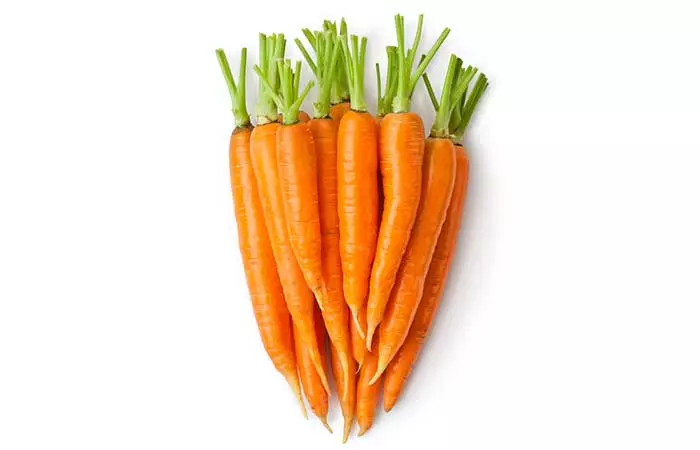
Carrots are gorgeous and wholesome vegetables. They are very versatile and impart an amazing color to any dish. They are loaded with beta-carotene, an antioxidant and a precursor of vitamin A. Scientists have found that consuming carrots improves night vision in people and can prevent deterioration of eyesight (2). Carrots also help prevent oxidative damage and inflammation – the two major causes of eyesight problems.
You can find several recipes for carrot soup on the internet. Add them to curries or pair them up with other veggies. Raw carrots offer maximum nourishment since cooking them slightly deteriorates their nutritional profile. Munch on a carrot whenever you get an urge to snack. Or add it to your salads. But remember to drink lots of water. Also, do not overeat carrots as vitamin A can be toxic in high doses.
2. Fatty Fish
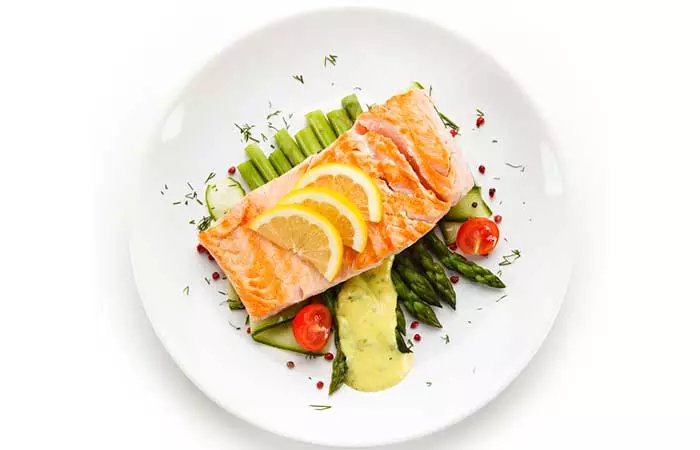
Fatty fish are rich sources of omega-3-fatty acids. And omega-3s help reduce inflammation by balancing out the omega-3 and omega-6 fatty acid ratio. When the inflammation levels are low, your body and brain functions improve, thereby strengthening your immunity. Plus, the area near the retina is loaded with DHA, a type of omega-3 fatty acid (3). Therefore, consuming fish like salmon, tuna, and mackerel is beneficial for your eye health.
If you are not a fish eater, you can take fish oil supplements after talking to your doctor. The best way to consume fatty fish is to grill it. Frying or poaching may reduce its food value.
3. Spinach
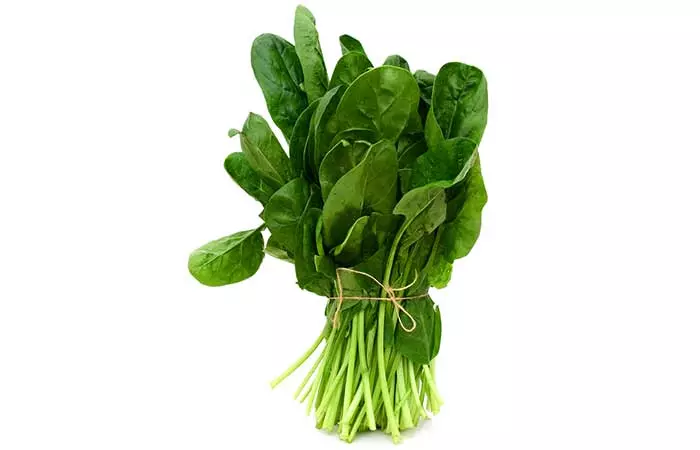
Spinach is rich in vitamins E, A, B, and C, minerals like iron and zinc, and phytonutrients like lutein and zeaxanthin. The carotenoids, lutein and zeaxanthin, have antioxidant and anti-inflammatory properties. Hence, consuming an adequate amount of spinach daily can help prevent macular degeneration and cataracts. Since it contains zinc, spinach can also keep the corneas healthy.
Add a bunch of lush green spinach to your smoothies. You may add fruits to your spinach smoothie to nullify any grassy or bitter taste. Spinach daal or soup tastes great too! Add baby spinach to sandwiches or a creamy pasta dish to give a little crunch to your food.
4. Eggs
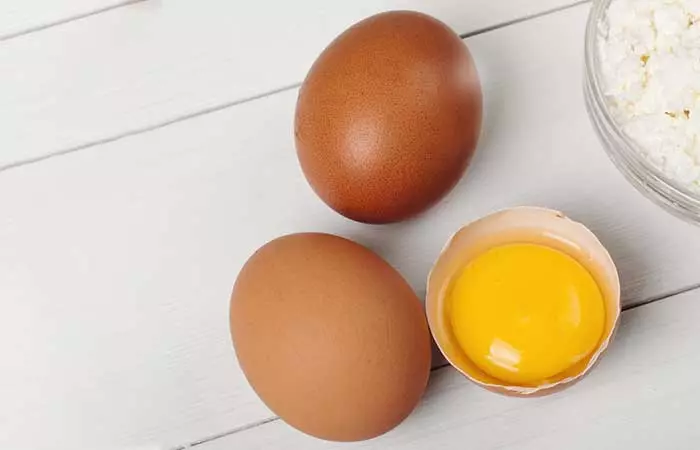
Eggs are loaded with essential amino acids and both water-soluble and fat-soluble vitamins. The egg yolk, though a little high in cholesterol, is a good source of lutein and zeaxanthin, which impart the yellow color to it (4).
Consume one or two whole eggs to keep your eyes healthy. Boiled, poached, or soft-boiled eggs are best and can be added to other foods to enhance their taste.
5. Dairy
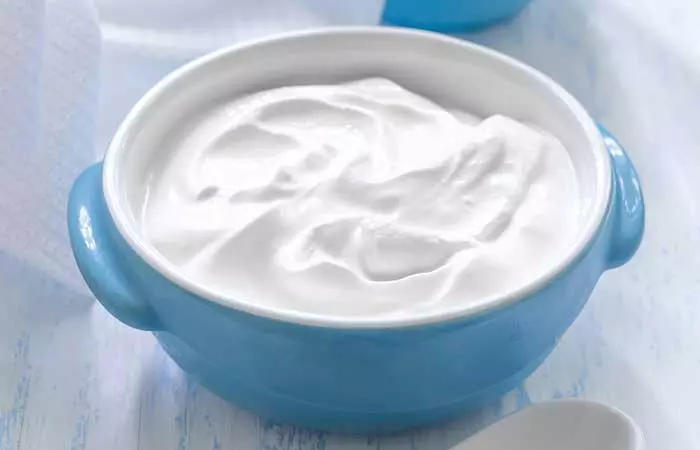
Milk and yogurt are great for improving eye health. Apart from calcium and phosphorus, they are loaded with zinc and vitamin A. Vitamin A helps protect the cornea, and zinc helps transport vitamin A to the eyes from the liver. Zinc also helps with night vision and prevents cataract.
You can drink grass-fed milk in the morning or at night before going to bed. Have yogurt after lunch or as a snack.
6. Nuts
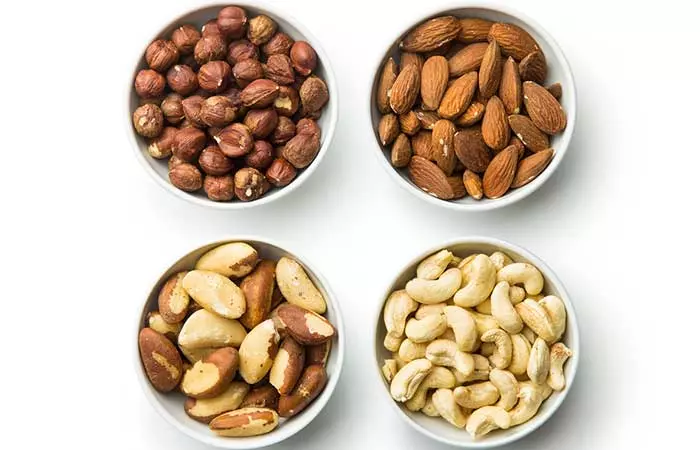
Nuts are a great source of healthy fats and vitamin E, which helps reduce inflammation. Research has also confirmed that consuming nuts rich in vitamin E can help prevent age-related cataract formation (5).
You must have a handful of mixed nuts every day to help improve and protect your vision. However, be careful with these small bundles of joy as you can easily go overboard with them.
 Quick Tip
Quick Tip7. Kale
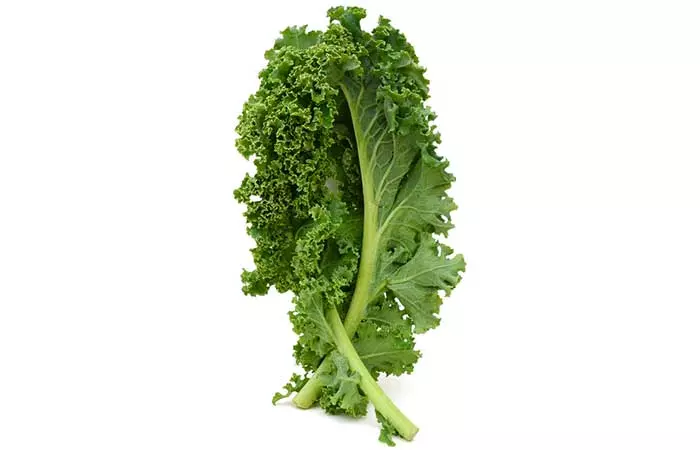
Like spinach, kale is also loaded with vitamins, minerals, dietary fiber, and lutein. Lutein helps prevent light and oxidative damages and protects the eyes from age-related macular degeneration and cataract (6).
About 100 g of kale can provide you with 11 mg of lutein. You can have kale in salads, soups, smoothies, wraps, and sandwiches.
8. Whole Grains
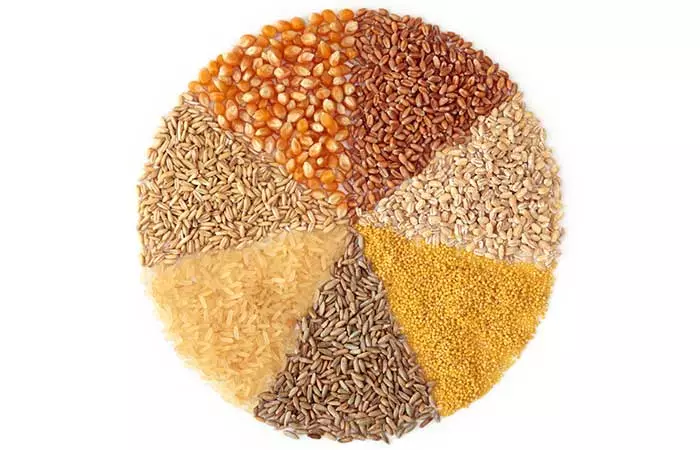
Whole grains are a great source of dietary fiber, phytonutrients, vitamins, and minerals. Zinc and vitamin E are the two main eye health-promoting nutrients present in them (7). These help protect the eyes from oxidative damage and inflammation.
Consume quinoa, whole lentils, oats, and brown rice to boost eye health.
9. Oysters

Oysters are rich in zinc that helps improve eye health. Moreover, fish and shellfish contain high levels of omega-3 fatty acids that help protect against advanced age-related macular degeneration (8). You may consume oysters from a reputed restaurant.
10. Red Bell Pepper

Red bell pepper is a good source of vitamins A, E, and C and zeaxanthin and lutein. These vitamins and phytonutrients are known to protect the eyes from macular degeneration and help maintain good retina health by preventing oxidative damage (7).
Consume raw, blanched, or sautéed red bell peppers.
11. Broccoli
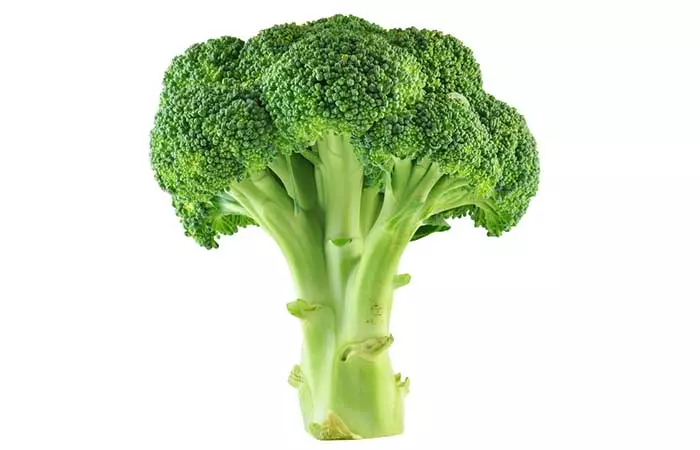
Broccoli is one vegetable that has numerous health benefits. The vitamins A, E, C, and lutein present in broccoli makes it an excellent food for your eyes (7). It helps protect your visual health by preventing photodamage and oxidative damage.
Consume roasted or blanched broccoli.
12. Sunflower Seeds
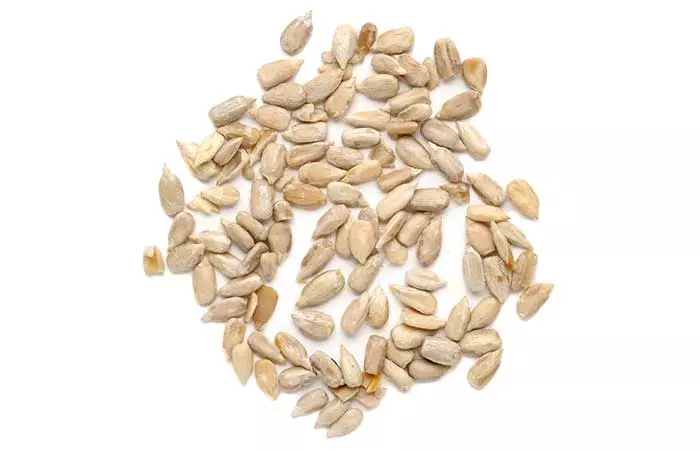
Sunflower seeds are extremely good for your overall health. These are packed with vitamin E, protein, and healthy fats. These nutrients help reduce inflammation and remove metabolic wastes from the eyes (9).
Toss a few sunflower seeds in your breakfast bowl, salads, or smoothies.
13. Citrus Fruits
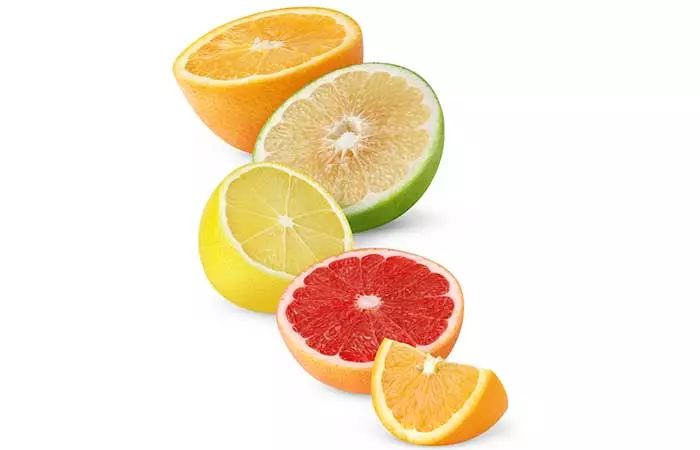
The eyes have a high metabolic rate and constantly need antioxidants to flush out toxins produced as a result of metabolic reactions (1). Citrus fruits like oranges, berries, and kiwis are loaded with vitamin C – an amazing immunity booster. It is an antioxidant that helps scavenge the harmful oxygen radicals, thereby protecting your eye muscles from damage. Vitamin C also helps improve the health of the blood vessels present in the eyes.
 Quick Tip
Quick Tip14. Beans And Legumes
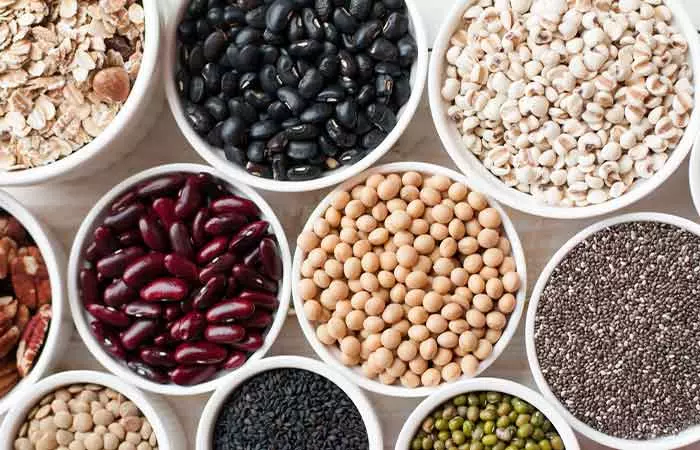
Beans and legumes are great sources of zinc and bioflavonoidsi A group of compounds occurring mainly in citrus fruits rich in vitamin C and antioxidants that help treat inflammatory conditions. . These help protect the retina and prevent the risk of developing a cataract.
Consume an adequate amount of lentils, kidney beans, chickpeas, green peas, and sprouts to improve your eye health.
15. Sweet Potato/Purple Sweet Potato

Sweet potato and purple sweet potato help improve vision (10). As mentioned above, the yellow pigment in foods is imparted by zeaxanthin and lutein. Sweet potatoes contain these antioxidants that help reduce inflammation and flush out toxins.
You can consume baked or boiled sweet potato to reap all its benefits.
You can also improve your eyesight with some eye exercises, like the eye roll and bounce, along with including these ingredients in your diet. A blogger shares their personal journey of struggling with blurry vision for over 20 years, experimenting with natural ways to improve their eyesight. They write, “Simple eye exercises, slight changes in diet, and important eye relaxation techniques, if done on a regular basis, can improve eyesight (i)!” She goes on to share how her vision has gotten better, adding, “It has worked wonders for my eyesight… but I suggest you do your due diligence and investigate the options for yourself!”
Note: While incorporating these eye-friendly foods into your diet, maintain a balance. Instead of focusing on just one of them, try to include a mix of them in each of your meals for more variety. It is also important to combine them with other nutrients like protein and fiber to ensure overall health.
The foods mentioned above are rich in nutrients required for good eye health. Let us take a quick look at these nutrients in the next section.
Key Takeaways
- Fruits and vegetables rich in phytonutrients help improve retina health.
- Consume oysters and fish to prevent eye conditions, such as macular degeneration.
- Apart from foods, keep your eyes protected from direct sunlight and excess screen time.
- Practice eye exercises and visit an eye doctor to monitor your eye health.
Essential Vitamins And Minerals For Eye Health
Here are the most essential vitamins and minerals for your eyes (11):
- Vitamin A: Ensures proper functioning of the retina.
- Vitamin C: Maintains the health of the blood vessels and promotes proper blood flow
- Vitamin D: Prevents age-related macular degeneration.
- Vitamin E: Helps prevent oxidative damage and protect the cell membranes within the eyes.
- Zinc: Helps produce visual pigments in the eye and transmits signals to the brain for clear vision.
- Omega-3 Fatty Acids: Helps reduce the risk of dry eyes that may cause blurred vision and irritation.
Apart from these foods, here are a few tips to maintain and protect your eyesight.
How To Take Care Of Your Eyes To Prevent Eyesight Problems
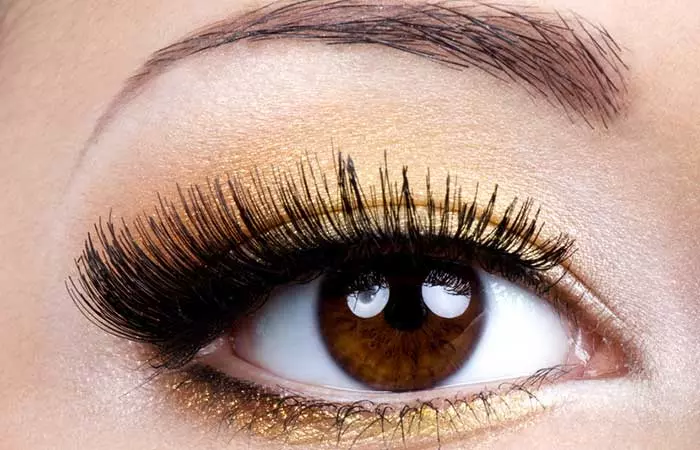
Foods make taking care of your eyes easier, but you must do a few things to help these foods do their work properly. Here are a few eye care tips and things you need to do to prevent visual impairment.
- Eye Exercises
You must exercise your eyes to strengthen the muscles. Focus unfocus, palming, rolling your eyes, etc. are a few examples of eye exercises. Check this post out to know more.
- Splash Water
All of us are hooked to our laptops, iPads, or cell phones. The radiation from these devices is very harmful, and no matter how many layers of protective coats we add to the glasses, the eyes always get affected. Cool your eyes by splashing water on them every one or two hours.
- Close Your Eyes
A tight deadline can turn you into a night owl. Unfortunately, the eyes of owls are designed differently. Give your eyes 2-3 minutes rest simply by closing them. Do it every 30 minutes, and you will see a difference.
- Adjust The Lighting
Adjust the lighting on your computer, cell phone, and iPad – it will help protect your eyesight by preventing photodamage.
- Wear Sunglasses
You must protect your eyesight from bright sunlight. If you are stepping out and it is very sunny outside, wear sunglasses. They will prevent photodamagei A term for changes in the skin, such as fine lines and wrinkles that occur due to prolonged exposure to UV radiations of the sun. and UV damage.
- Get The Right Spectacles
Go to a good eye doctor for a checkup. Make sure you answer his/her questions correctly to help him/her prescribe the correct glasses for you.
In addition to all this, it is also important to schedule regular appointments with your eye care professional. This will help you monitor your eye health better by addressing any potential concerns early on.
Now that you know how to protect your eyesight, it is still important to learn about the different types of eyesight problems to increase your awareness. Take a look.
Types Of Eyesight Problems
- Nearsightedness (Myopia)
The nearby objects appear clear but distant objects appear hazy. This occurs when the eyeball is too long or the cornea is too curved (12). There are many effective home remedies for myopia that may help improve your eyesight.
- Farsightedness (Hyperopia)
The distant objects are clearly visible while the nearby ones are less clear. This happens when the eyeball is too short or the cornea is flat (13).
- Astigmatism
It causes blurred vision due to an irregularly shaped cornea or lens, leading to distorted images (14).
- Presbyopia
The lens becomes less flexible, making it challenging to focus on nearby objects. This condition is called presbyopia and often requires reading glasses in older people (15).
- Night Blindness
Difficulty seeing in low-light conditions and can develop due to vitamin A deficiency (16).
Infographic: 7 Best Foods For Healthy Eyes
People frequently think that deteriorating vision is an inevitable side effect of aging or prolonged eye strain. In reality, a healthy lifestyle can significantly lower the chances of eye health issues. To acquire the proper nutrients for eye health, you should have a diversified diet rich in fruits, vegetables, and lean proteins. See the infographic below for the best foods to eat for healthy eyes.
Some thing wrong with infographic shortcode. please verify shortcode syntaxWhile vision health may decline with age, it is necessary to maintain and improve it. You can do so by keeping a close eye on your diet. Foods to improve eyesight naturally include carrots, spinach, eggs, blueberries, dark chocolate, green tea, tomatoes, avocados, pumpkin, squash, goji berries, black currant, nuts, and whole grains. These natural ingredients are effective as they contain good sources of omega-3 fatty acids and other nutrients that promote vision. Additionally, they contain beta carotene, which the body uses to create vitamin A, an essential nutrient for good eyesight.
Frequently Asked Questions
Can yoga improve your eyesight?
Yoga can help, but it cannot completely protect your eyesight from damage if you do not eat well and take some measures to keep your eyes healthy.
Does wearing glasses weaken your eyes?
No, it doesn’t. It helps see you better.
Is it bad to wear my old glasses?
Yes. You need to change your glasses every 10-12 months.
Are apples good for vision?
Possibly. Apples are rich in beneficial polyphenols that may scavenge free radicals and protect the eyes from oxidative damage (17), (18).
Does lemon water help eyesight?
Possibly. Lemon water contains lutein and zeaxanthin that protect the eyes from macular degeneration and the formation of cataractsi An eye disease in which the normally clear lens gets cloudy over a period of time due to protein build-up. (4). They are the best home remedies for cataracts.
Why is my eyesight getting worse so quickly?
Age, genetics, lifestyle, and diet are important factors that influence eyesight. An imbalance in any one of these factors can adversely affect your eyesight.
Does vitamin B12 help eyesight?
Possibly. A study found that daily supplementation of vitamin B12 may help reduce the risk of developing age-related macular degenerationi A common eye disorder that may lead to loss of vision in people above the age of 50 due to damage to the inner layers of the macula or retina. in older women (19).
Illustration: Best Foods To Improve Eyesight Naturally
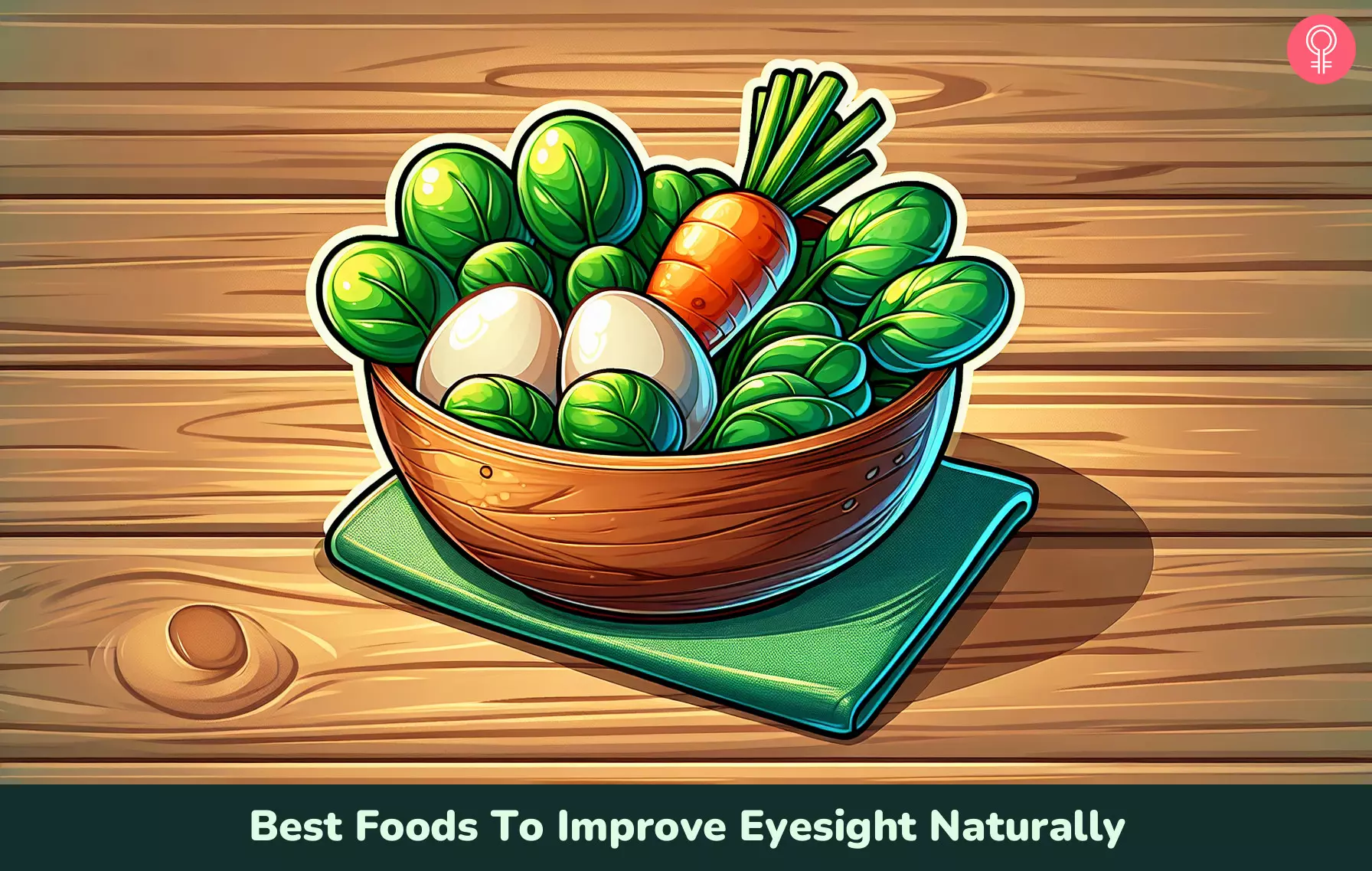
Image: Dall·E/StyleCraze Design Team
Want to know how to improve your eyesight naturally? Check out the video below for some of the best foods that can help you see better and keep your eyes healthy.
Personal Experience: Source
StyleCraze's articles are interwoven with authentic personal narratives that provide depth and resonance to our content. Below are the sources of the personal accounts referenced in this article.
i. How to Increase Eye Power and Vision with Healthy Diet Naturallyhttps://medium.com/@confident-mathews/how-to-increase-eye-power-and-vision-with-healthy-diet-naturally-902f35cf26c4
References
Articles on StyleCraze are backed by verified information from peer-reviewed and academic research papers, reputed organizations, research institutions, and medical associations to ensure accuracy and relevance. Read our editorial policy to learn more.
- Nutrients for the aging eye
https://www.ncbi.nlm.nih.gov/pmc/articles/PMC3693724/ - Carrots carotene and seeing in the dark
https://pubmed.ncbi.nlm.nih.gov/10484191/ - Effects of Omega-3 Fatty Acids on Eye Health: Summary
https://www.ncbi.nlm.nih.gov/books/NBK11888/ - Dietary Sources of Lutein and Zeaxanthin Carotenoids and Their Role in Eye Health
https://www.ncbi.nlm.nih.gov/pmc/articles/PMC3705341/ - Vitamin E and risk of age-related cataract: a meta-analysis
https://pubmed.ncbi.nlm.nih.gov/25591715/ - The Role of Lutein in Eye-Related Disease
https://www.ncbi.nlm.nih.gov/pmc/articles/PMC3708350/ - Nutrients for Prevention of Macular Degeneration and Eye-Related Diseases
https://www.ncbi.nlm.nih.gov/pmc/articles/PMC6523787/ - The Impact of Fish and Shellfish Consumption on Age-Related Macular Degeneration
https://www.ncbi.nlm.nih.gov/pmc/articles/PMC3894610/ - Nutritional modulation of cataract
https://www.ncbi.nlm.nih.gov/pmc/articles/PMC4097885/ - The influences of purple sweet potato anthocyanin on the growth characteristics of human retinal pigment epithelial cells
https://www.ncbi.nlm.nih.gov/pmc/articles/PMC4464420/ - Unveiling the spectrum of ophthalmic manifestations in nutritional deficiencies: a comprehensive review
https://www.ncbi.nlm.nih.gov/pmc/articles/PMC10777438/ - Myopia
https://www.ncbi.nlm.nih.gov/books/NBK580529/ - Hyperopia
https://www.ncbi.nlm.nih.gov/books/NBK560716/ - Astigmatism
https://www.ncbi.nlm.nih.gov/books/NBK582142/ - Presbyopia
https://www.ncbi.nlm.nih.gov/books/NBK560568/ - Nyctalopia
https://www.ncbi.nlm.nih.gov/books/NBK545246/ - Polyphenolic Compounds Analysis of Old and New Apple Cultivars and Contribution of Polyphenolic Profile to the In Vitro Antioxidant Capacity
https://www.ncbi.nlm.nih.gov/pmc/articles/PMC5789330/ - Polyphenols and Visual Health: Potential Effects on Degenerative Retinal Diseases https://www.ncbi.nlm.nih.gov/pmc/articles/PMC8200069/
- Folic Acid, Vitamin B6, and Vitamin B12 in Combination and Age-related Macular Degeneration in a Randomized Trial of Women https://www.ncbi.nlm.nih.gov/pmc/articles/PMC2648137/
Read full bio of Temple Stewart
Read full bio of Arshiya Syeda
Read full bio of Aparna Mallampalli






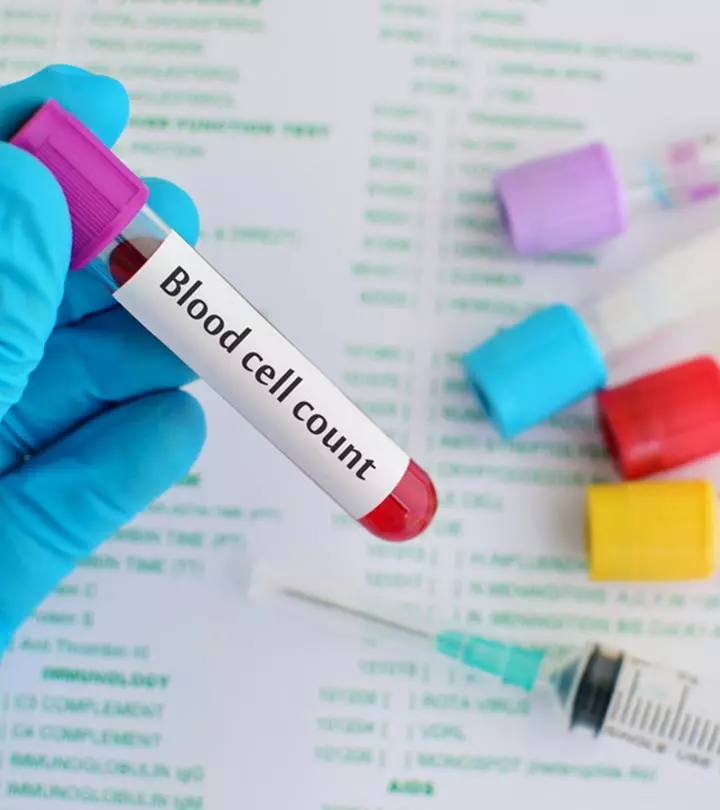

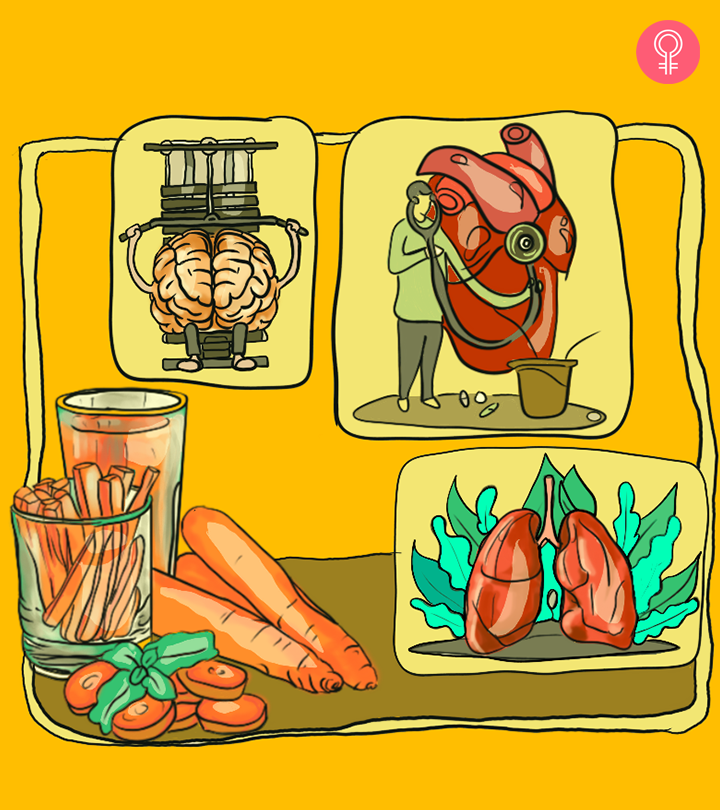



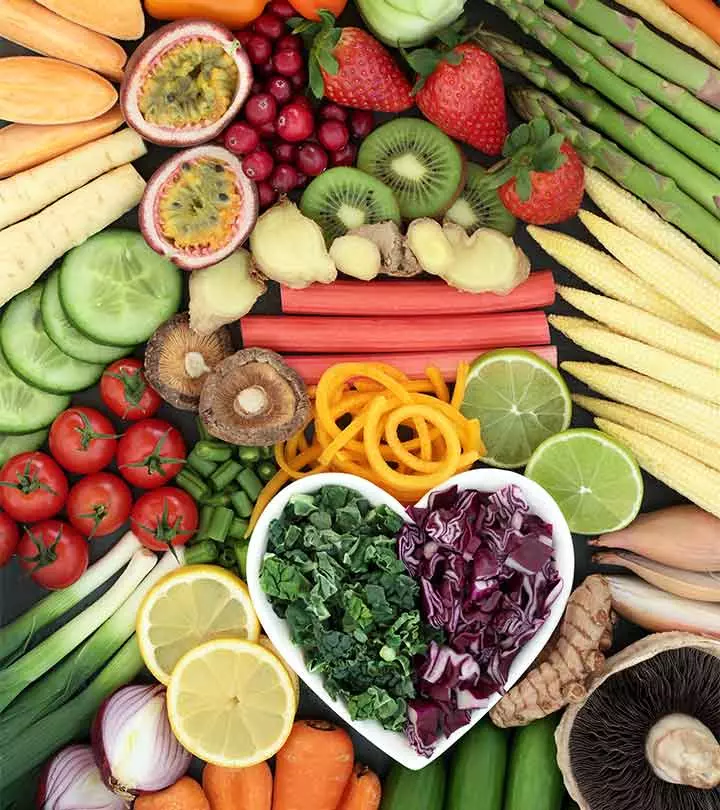
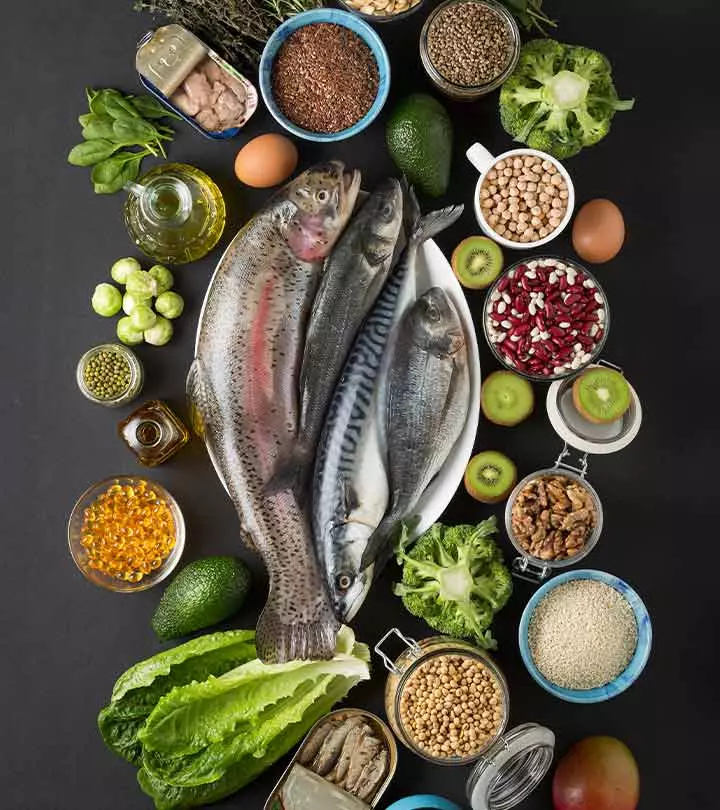
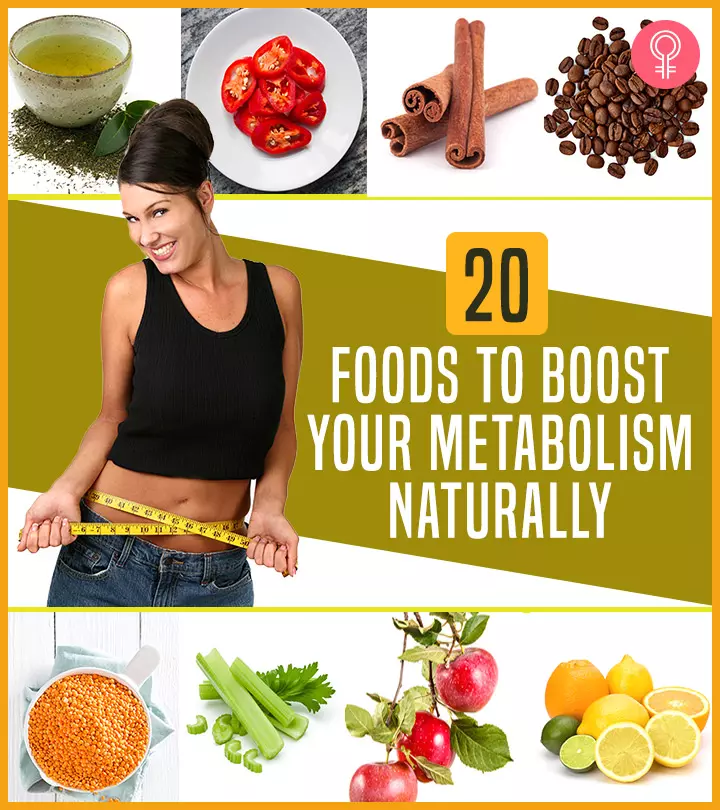
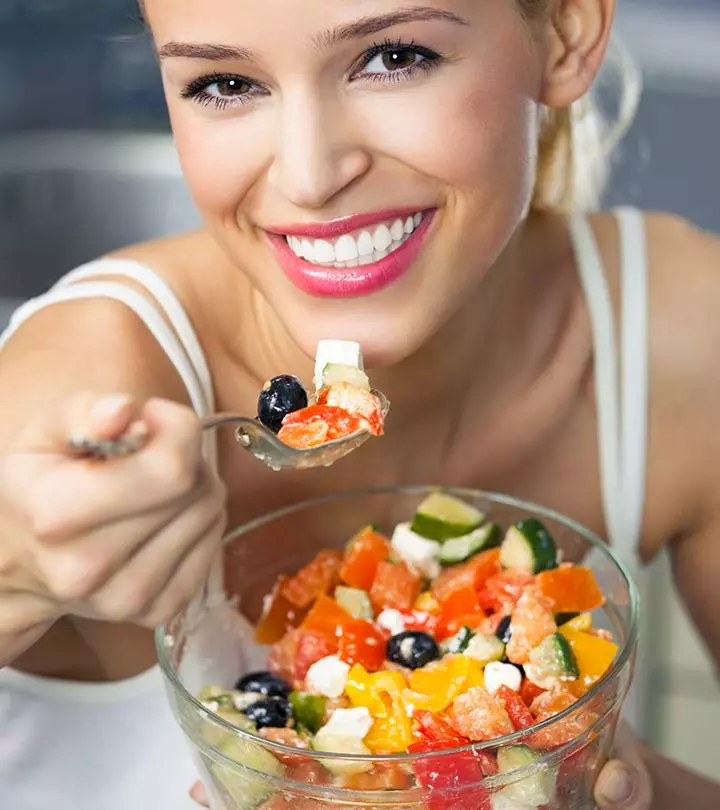
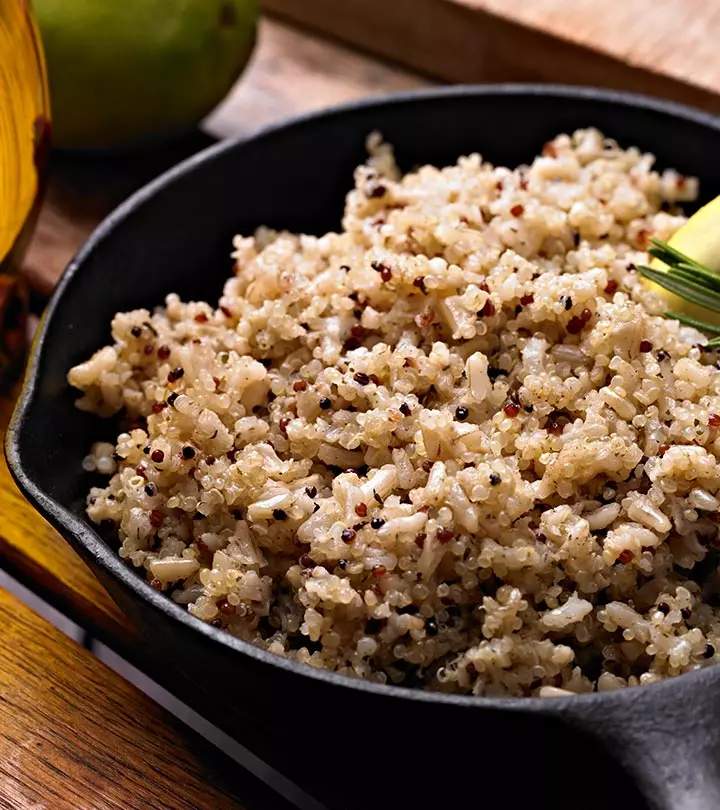
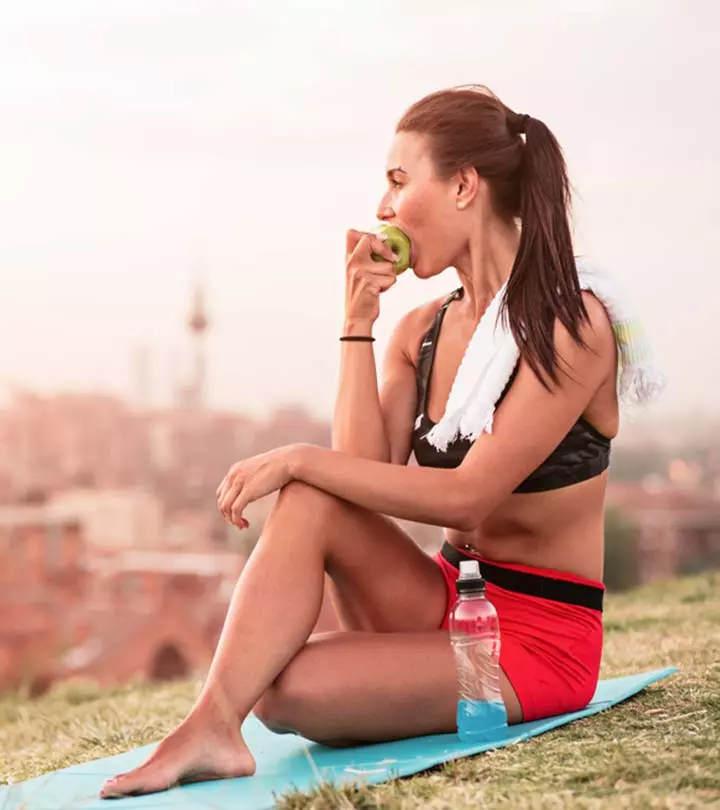






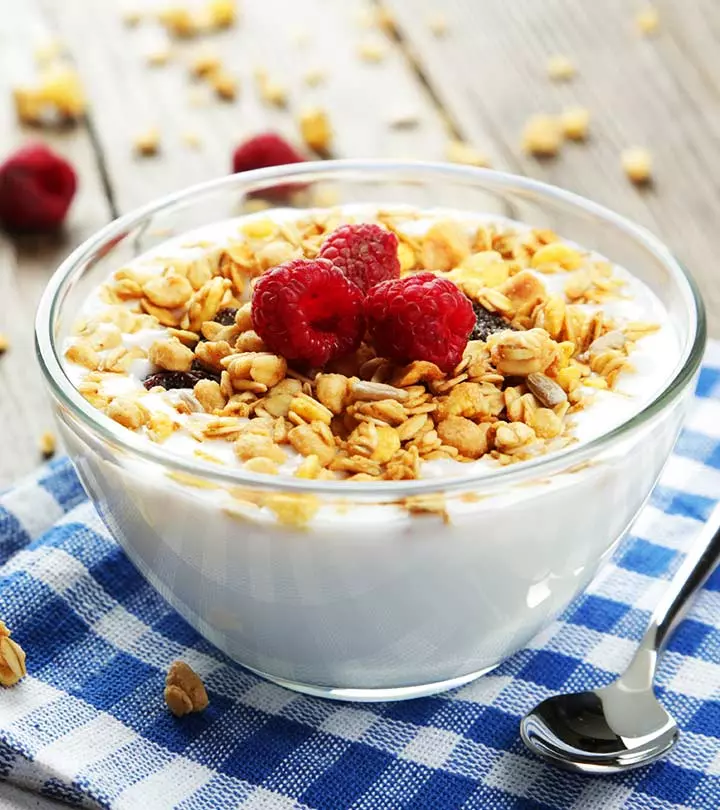


Community Experiences
Join the conversation and become a part of our empowering community! Share your stories, experiences, and insights to connect with other beauty, lifestyle, and health enthusiasts.